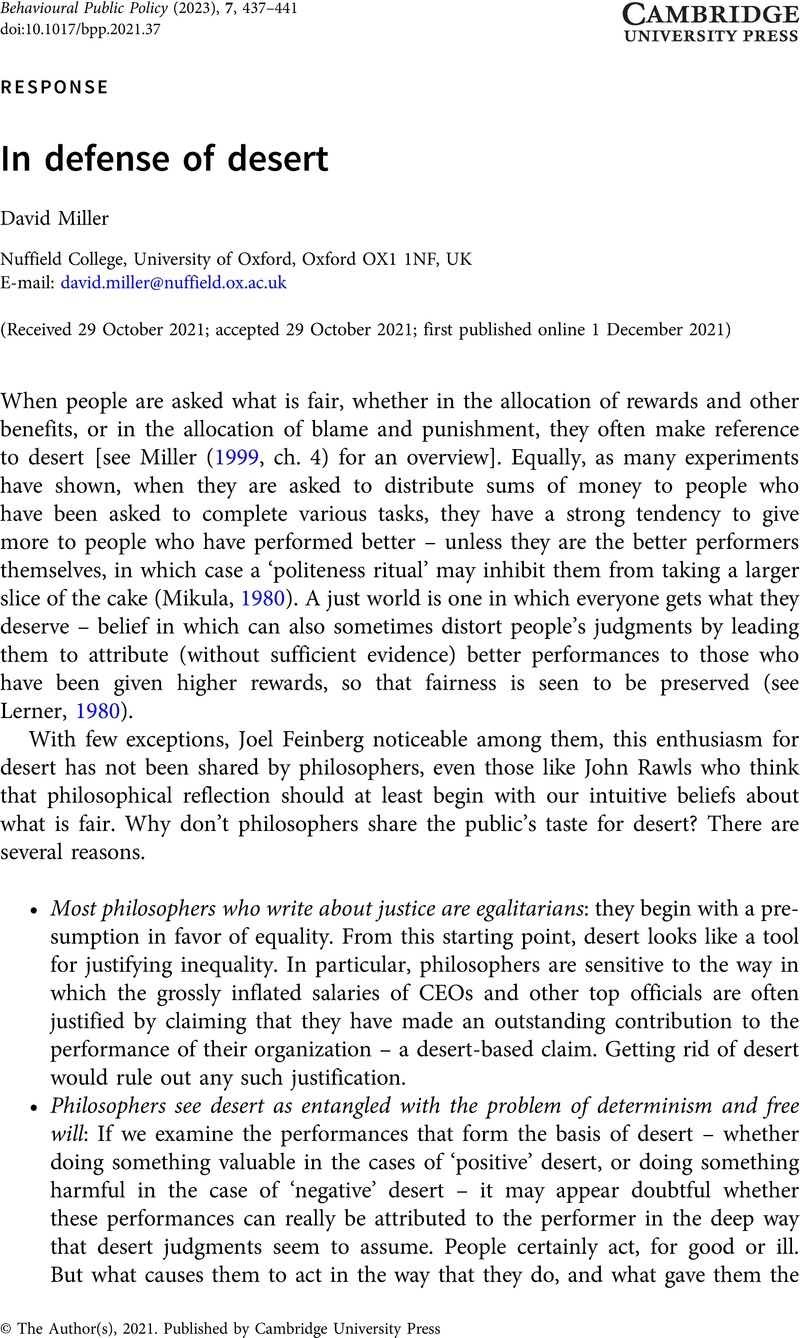No CrossRef data available.
Article contents
In defense of desert
Published online by Cambridge University Press: 01 December 2021
Abstract
An abstract is not available for this content so a preview has been provided. Please use the Get access link above for information on how to access this content.

- Type
- Response
- Information
- Copyright
- Copyright © The Author(s), 2021. Published by Cambridge University Press
References
Lerner, M. (1980), The belief in a just world: A fundamental delusion. New York: Plenum Press.CrossRefGoogle Scholar
Mikula, G. (1980), ‘On the role of justice in allocation decisions’, in Mikula, G. (ed.), Justice and social interaction, Bern: Hans Huber, 127–166.Google Scholar
Miller, D. (2014), ‘Our unfinished debate about market socialism’, Politics, Philosophy and Economics, 13(2): 119–139.CrossRefGoogle Scholar
Rawls, J. (2001), Justice as fairness: A restatement. Cambridge: Harvard University Press.CrossRefGoogle Scholar
Scheffler, S. (2001), ‘Justice and desert in liberal theory’, in Scheffler, S. (ed.), Boundaries and allegiances: Problems of justice and responsibility in liberal thought, Oxford: Oxford University Press, 173–196.Google Scholar
Scott, J. and Bornstein, B. (2009), ‘What's fair in foul weather and fair? Justice across different allocation contexts and goods’, Journal of Politics, 71(3): 831–846.CrossRefGoogle Scholar
Walzer, M. (1983), Spheres of justice: A defence of pluralism and equality. Oxford: Martin Robertson.Google Scholar


